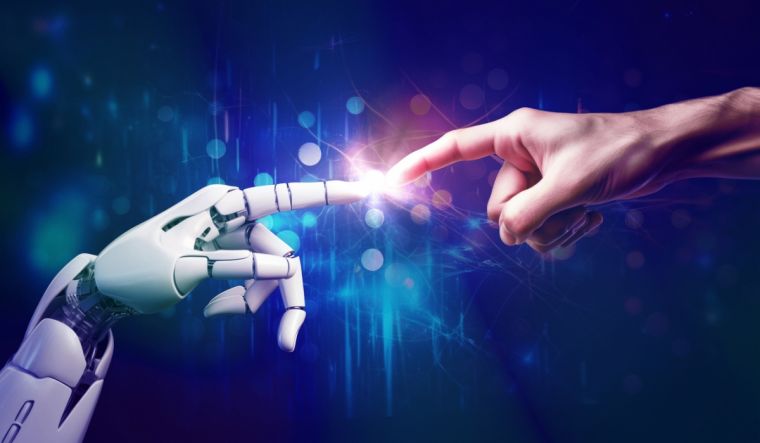Should we listen to an AI sermon?

Our dominant fears in any given time are often reflected in the villains in our blockbuster films. In the past decades, cinema's baddies have ranged from Russians during the Cold War era, to crazed billionaires when the economy flourished.
So in the most recent cinematic release of "Mission Impossible" it's perhaps not surprising that the main "baddy" is not human at all – it's a computer programme called "The Entity".
This reflects anxiety about recent developments in Artificial Intelligence – the ability of computers to think for themselves. The fears vary from the ability of AI to create 'deepfake" videos of celebrities and leaders to make them say things they didn't really say, to treating AI as if it is a higher being or "god-like".
The ability of AI to create new content such as music, blog posts and film scripts has also caused alarm that humans in creative jobs will be replaced by cheaper computers. But what of spiritual content? What of an article like this? Or even sermons? Could a computer one day replace a pastor preaching at the front of church?
It has already been tried in June this year, in an experimental church service in Nuremberg, Germany. An artificial avatar preached about "leaving the past behind, focusing on the challenges of the present, overcoming fear of death, and never losing trust in Jesus Christ," according to the Associated Press report.
This sermon came from the most well-known AI content creator, ChatGPT. But this programme has been extensively "trained" by human beings. It developed its abilities by "learning" from human created content on the internet. Unfortunately, it therefore picked up lots of unpleasant tendencies, and would make racist and abusive comments. So it also needed humans to change this, by hiring Kenyan workers who had to endure toxic and harmful content so that it could be flagged as harmful and not churned out by the programme.
The Nuremberg service also had its title and parameters set by its human creator. At this stage therefore, AI is very much still a human creation, based on human thinking, and dependent on our own brainpower. Its boundaries and how it interprets information are being decided by human beings.
So AI sermons and spiritual writings will be based on the human-defined input into the programme. But should we trust the boundaries of ChatGPT's founders? Do they care about the things of God? Will they care if sermons are doctrinally accurate, or building up people's faith? If the answer is "no", then we should be very cautious about using its content in our spiritual lives. Unless we know what kind of direction an AI programme has been given in terms of theology and acceptable statements, we can't trust its output.
But what if trusted preachers designed the AI sermon-writing programme to keep within acceptable theological boundaries? Could we then use the artificially created sermons without concern? Perhaps some denominations would like this. They could ensure that their churches' sermons did keep within orthodox Christian belief, for example. It could be a way of controlling the quality of what people in the pews listen to.
To consider that possibility, we have to consider the differences between AI and human beings. Mathematics professor and Christian apologist John Lennox points out key differences including the ability to care about others.
Yet not all human beings do care. Any person can get up and preach a sermon, and unless we know them, we do not know what their own beliefs are or the motivations behind what they are writing.
Sadly there are people who abuse this position of responsibility. They lead churches, and preach, for selfish purposes. This can vary from increasing the income of the church, to more sinister reasons such as control and creating a culture where their abuse is hidden and enabled.
So human sermons can be written for bad motives and without love for others, just as an AI sermon can. They can both get doctrine wrong, too. At least with an AI sermon, it might become possible to firmly limit what is said. At present AI does not have the ability to abuse and control, though it's possible that one day, that could become a real concern.
But we have a much better way to mitigate against all the possible flaws and failures of human beings in how they write and preach sermons. That is the Holy Spirit. We believe that God can work through human beings, even speak through them. That protects us from harm, but it's really the very purpose of preaching itself.
Umpteen Bible passages describe how preaching, prophecy and Scripture are inspired by the Holy Spirit. For example, John 3:34, John 14:26, Cor 2:4-5, Acts 4:8-12, Acts 6:10, 1 Thess 1:5, 1 Pet 1:12, 2 Pet 1:19-21. Discerning whether preaching has been inspired by the Holy Spirit is essential. "This is what we speak, not in words taught us by human wisdom but in words taught by the Spirit, explaining spiritual realities with Spirit-taught words," says 1 Cor 2:13.
If the most important factor in a sermon is whether it has been guided by the Holy Spirit... could the Holy Spirit guide AI? Nothing is impossible with God. But nothing should replace a preacher who is genuinely speaking with the power of the Spirit, and who genuinely loves their congregation. An AI-created sermon is just as hopeless as a human-penned one, if the Holy Spirit has not inspired it.











